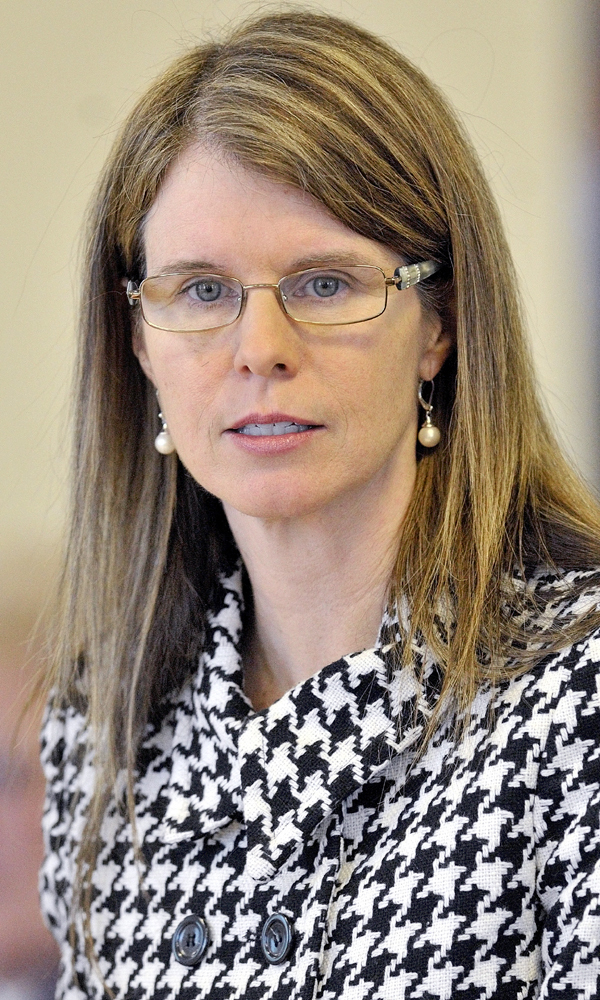The LePage administration is moving quickly to put its mark on MaineCare, the state’s Medicaid program.
In the past month, the administration has fired the top two MaineCare officials — director Anthony Marple and medical director Dora Anne Mills — and suspended a long-running plan to reform the government insurance program by contracting with private managed-care networks.
And Gov. Paul LePage hinted this week that the rest of the Department of Health and Human Services may be in for big change.
LePage told reporters in Augusta that he is considering splitting up the state’s largest department. DHHS could be more efficient and focused if it were broken into two pieces — one focused on health care and the other on welfare, he said.
LePage’s predecessor, Gov. John Baldacci, had a different approach to efficiency. Baldacci created DHHS by merging two departments — the Department of Human Services and the Department of Behavioral and Developmental Services — and eliminating hundreds of jobs.
Dan Demeritt, LePage’s spokesman, called the idea of splitting up DHHS “very preliminary” and said Friday that there is no formal proposal to reorganize.
Mary Mayhew, DHHS commissioner, said the administration will take a top-to-bottom look at the department.
Such analysis “will likely occur throughout all state agencies as the governor seeks to assess how well these agencies are structured,” Mayhew said.
MaineCare is the largest program within DHHS. Its shake-up has been swift and controversial.
Democratic lawmakers criticized the Republican administration in late January for firing Marple, the longtime MaineCare director.
And this week, lawmakers from both parties questioned the firing of Mills, who was the state’s longtime public health director before she took the job with MaineCare late last year.
Mills reportedly was fired in a telephone call Wednesday while she was skiing at Sugarloaf with her family during a day off. Her dismissal came days after LePage downplayed the health risks of bisphenol A, saying exposure to the plastic additive has not been proven to be dangerous and “the worst case is some women may have little beards.”
As public health director, Mills advocated for restrictions on the controversial chemical in children’s products.
“Many of the committee members are very upset about Dora being fired,” said state Rep. Mark Eves of North Berwick, the ranking Democrat on the Legislature’s Health and Human Services Committee. “It’s becoming clear that if you don’t agree (with LePage), you don’t belong.”
Marple and Mills declined to comment for this story.
Mayhew said the BPA controversy was not a factor in Mills’ firing. “It simply pertained to a new administration assembling a new team,” she said.
Both Marple and Mills will be replaced, Mayhew said.
Management of MaineCare is clearly a primary focus for the administration. The program provides coverage to about 340,000 children and adults and has an annual budget of about $2.26 billion. The federal government pays two-thirds of that cost while the state pays the rest.
The Democratic Baldacci administration, with bipartisan support in the Legislature, laid the groundwork for reform that’s intended to reduce the cost of MaineCare.
Starting next year, MaineCare recipients would be enrolled in private managed-care networks. The contractors would be paid set fees by the state, so they would have an incentive to save money by keeping patients healthy and reducing hospitalization rates.
As medical director, Mills would have had the job of ensuring that the managed care networks provided quality care as they reduced costs.
The reform plan was about two years in the making, a process that has cost the state as much as $1 million, officials said.
A committee that had been meeting monthly to prepare for the reforms was told last week that its work was being suspended so the LePage administration could re-evaluate the plans.
“I’ve asked for that to be delayed because I want to make sure that the approach the state takes to achieving … higher quality and better coordination of care is accomplished as efficiently as possible,” Mayhew said. “The goal of reducing unnecessary spending by delivering care in a more-coordinated fashion and with better outcomes is still a high priority for this administration.”
Mayhew said there may be other ways to reduce costs and improve quality through internal reforms, such as performance-based contracting. She also said DHHS will continue to work with the Legislature.
Sen. Joseph Brannigan, D-Portland, who was a co-chairman of the Health and Human Services Committee last year, said the reforms were widely supported. But, he said, it makes sense for the new administration to do its own review before moving forward with such major changes.
“I can see why they would do this,” he said. “This is a big deal.”
Eves said he was surprised to hear that the managed care plan was on hold.
“I thought we were on that track,” he said. “Whatever we do, we have to do pretty quickly. The more we delay, the more time that lapses before we get (costs) under control.”
Brannigan and Eves said they are curious to hear more from LePage about larger reforms, such as splitting up DHHS.
“I’ll be waiting to hear more about that (and) whether it was a casual remark or a real plan,” Brannigan said.
Staff Writer John Richardson can be contacted at 791-6324 or at:
jrichardson@pressherald.com
Send questions/comments to the editors.


